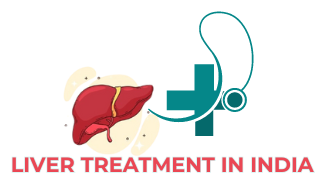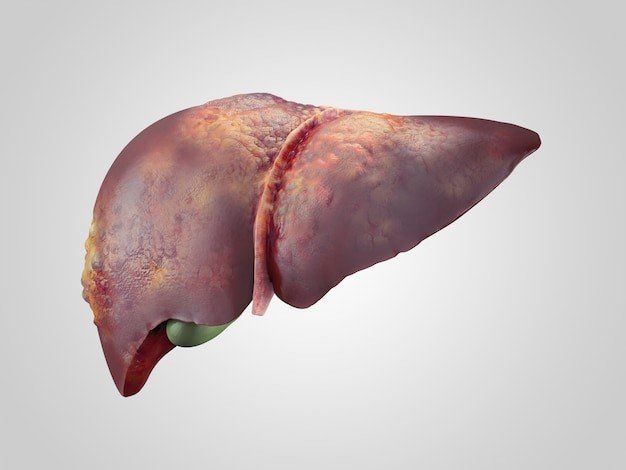Understanding the Liver's Vital Functions
The liver plays a critical role in the body’s overall function. It performs various vital functions that are essential for maintaining good health. Among the liver’s essential roles are the following::
- Metabolism: The liver is responsible for metabolizing nutrients, detoxifying harmful substances, and regulating the levels of sugar, protein, and fat in the blood.
- Storage: The liver stores essential nutrients such as vitamins, minerals, and glucose to be released into the bloodstream as needed. It also stores blood and regulates its flow.
- Bile production: The liver produces bile, which is necessary for the digestion and absorption of fats in the small intestine.
- Filter: The liver acts as a filter, removing toxins and waste products from the blood, ensuring that the body remains free from harmful substances.
- Immune function: The liver is an important part of the body’s immune system, helping to fight infections and remove bacteria from the bloodstream.
Importance of Early detection and treatment of liver disease
The liver’s crucial role makes it essential to maintain good liver health. Early detection and treatment of liver disease are vital to prevent further damage and complications. Liver diseases include cirrhosis, liver cancer, hepatitis, and fatty liver disease. It’s important to recognize the symptoms of liver disease and seek medical attention if you experience any concerning signs, such as jaundice, abdominal pain, or unexplained weight loss. For this very reason, As an assistant in searching liver expert doctor for liver transplantation, we as Liver Treatment in India are well known for providing the greatest information available along with putting our consumers in touch with the best liver transplant specialists in India.
General Symptoms of Liver Disease
The following liver symptoms may indicate various liver conditions, highlighting the importance of seeking medical attention for proper diagnosis and treatment.
Jaundice: A Telltale Sign
Jaundice, characterized by yellowing of the skin and eyes, is a prominent indicator of liver problems. It occurs due to the accumulation of bilirubin, a yellow pigment in the blood. Pale stools and dark urine are closely associated with jaundice and are often linked to liver dysfunction. Additionally, individuals with liver disease often experience symptoms such as fatigue and weakness. These symptoms can be persistent and significantly impact daily functioning.
Recognizing these liver symptoms, particularly jaundice, pale stools, dark urine, fatigue, and weakness, is crucial for the early detection of liver issues. Seeking prompt medical attention upon observing these indicators can lead to early diagnosis and appropriate treatment, ultimately improving outcomes for individuals with liver-related problems.
Abdominal Discomfort and Digestive Issues
significance of recognizing abdominal discomfort and digestive issues as potential indicators of liver disease. Abdominal pain and swelling are common symptoms associated with liver dysfunction, often signaling the presence of an underlying issue. Loss of appetite and unexplained weight loss are also notable signs that may accompany liver disease. These symptoms of liver problems can have a significant impact on an individual’s overall health and well-being and should not be ignored.
Furthermore, liver disease may manifest through symptoms such as nausea, vomiting, and various digestive disturbances. These symptoms can be disruptive and may significantly affect an individual’s quality of life.
Changes in Urination Patterns
Changes in urine color and frequency can serve as crucial indicators of liver dysfunction. Dark urine, particularly if it appears brownish or tea-colored, can be indicative of liver issues. Likewise, changes in the frequency of urination, such as increased or decreased urination, should be carefully noted as it may signal underlying liver problems. Additionally, recognizing the presence of blood in urine is vital. Hematuria, or the presence of blood in the urine, can be a concerning sign and may point towards the progression of liver disease.
Understanding these changes in urination patterns and recognizing urine as an indicator of liver disease can play a critical role in the early detection and management of liver-related issues.
Skin and Nail Abnormalities
Skin abnormalities such as rashes and itchiness can be manifestations of liver dysfunction. These symptoms of liver damage should not be overlooked, as they may indicate the presence of liver-related issues. Additionally, the presence of spider veins and bruising tendencies should be carefully examined, as these can also be associated with liver conditions. These abnormalities can provide valuable clues to the presence of liver disease and should be monitored closely.
Furthermore, abnormalities in the nails can offer insights into underlying liver conditions. Changes in nail health, such as discoloration, brittleness, or the presence of white lines, can be indicative of liver issues and should be taken into consideration when assessing an individual’s overall health.
Neurological Symptoms and Mental Changes
Cognitive impairment and confusion are significant indicators of liver dysfunction. These symptoms can manifest as difficulty concentrating, memory lapses, and overall cognitive decline, which may be subtle but impactful. Sleep disturbances and daytime drowsiness can also be linked to liver disease. Individuals experiencing liver issues may encounter issues such as insomnia or excessive daytime drowsiness, which can significantly disrupt their quality of life.
Additionally, personality changes and mood swings are essential to recognize as potential symptoms of liver damage. These changes can include irritability, anxiety, depression, or sudden shifts in behavior, which may be indicative of underlying liver-related problems.

